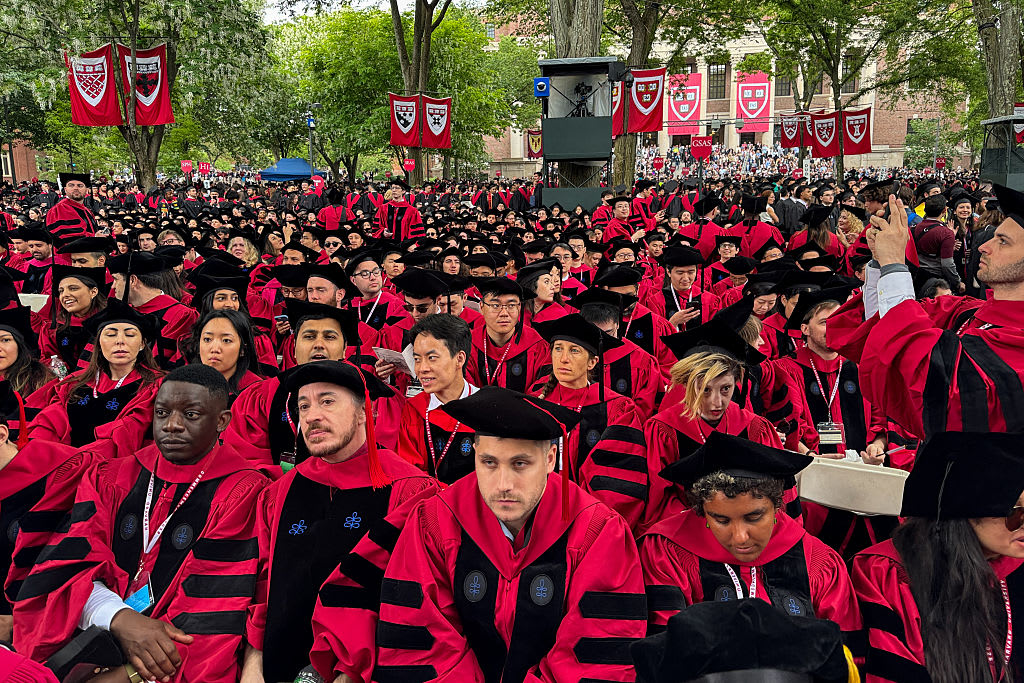4 great reasons to get a private student loan this fall
With just weeks before many students head back to campus for the fall semester, it's time to decide exactly how to pay for the costly expenses a new school year can bring.
Tuition, room and board, added fees, books and general living expenses can add up quickly. Luckily, there are plenty of financial resources to help — between grants, federal student loans and private lending options, you can lock in a financial plan that's manageable over the long term.
For some borrowers this fall, private loans could be especially useful. Start your search with private student loans available today.
4 great reasons to get a private student loan this fall
If you're weighing your financing options this season, here are some things to know about private student loans:
You don't qualify for federal loans
Many experts we speak to recommend prioritizing federal student loans if you're looking to borrow money for college.
"In my opinion you always want to maximize your federal student loan borrowing prior to adding a private loan," says Jared Andreoli, CFP, founder of Simplicity Financial. "Federal loans have so many more payment options and the ability to be forgiven, unlike private loans."
While they do work for most students, federal loans aren't always an option. Not filing for FAFSA, defaulting on a federal loan in the past and more could keep you from qualifying. You can find a comprehensive list of eligibility requirements for federal loans on the Federal Student Aid website.
If you don't qualify for federal student loans for any reason, you may want to consider private loans as an alternative. Learn more about lending options you qualify for today here.
You need extra funds
Even if you do qualify for federal student loans, you may not be eligible for enough money to cover all of your expenses. If your federal funding falls short, you could consider adding private student loans to the mix.
The amount you are able to borrow using federal student loans does have a max. This can depend on your academic year and your dependency status when filing taxes. Broadly speaking, the maximum combined borrowing limit for undergraduate students ranges between $5,500 and $12,500 each year, while graduate and professional students may borrow up to $20,500 per year (not including Direct PLUS Loans).
For some students who attend more costly programs or who have added expense, a private student loan could help cover the additional costs left after your federal loan is awarded.
You qualify for great terms
If you can score good loan terms with a private student loan lender, it could make the loan more valuable.
Private loans do not have the same advantages of federal loans, like forgiveness programs and flexible repayment options. But if you're thinking about adding a private loan to your plan, you can benefit from comparing different options to find the best loan terms.
In addition to the interest rate, make sure you look at things like the fees a lender charges and repayment terms, Andreoli says. "For example, does it require immediate repayment or can you defer for a period after graduation." More details you can look for include discounts for auto pay, hardship programs, discharge options and if you're able to release your cosigner from the loan in the future.
You want to refinance
After more than three years of a payment pause, federal student loans for existing borrowers are set to restart this fall. If you already have an existing student loan, you may want to consider refinancing.
While refinancing from a federal to private loan can mean giving up certain benefits, there are instances where it can make sense — especially if you don't qualify for any existing forgiveness programs.
Whether refinancing is right for you or not can also come down to the interest rate you'll score. Like any loan refinance, it's probably only worthwhile if you can get a much lower rate. Explore your options by comparing student loan rates available here.
The bottom line
If you're borrowing money as a student this year, you may consider grant money and federal student aid your first priority. These options for funding education have plenty of benefits that you won't want to forfeit. But private student loans may also have a place in your financial plan. These loans can offer alternatives if you don't qualify or receive enough in federal loans and may be a good option for refinancing higher-rate loans for some borrowers.
Learn more about your private student loan options and compare rates here.




